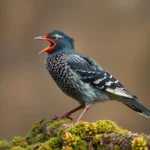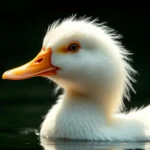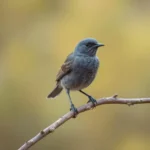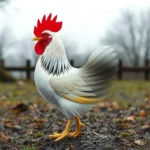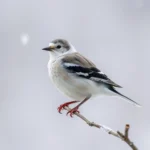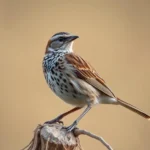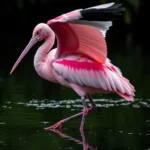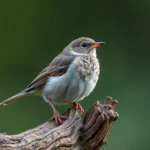The Egyptian Vulture: A Symbol of Renewal and Transformation
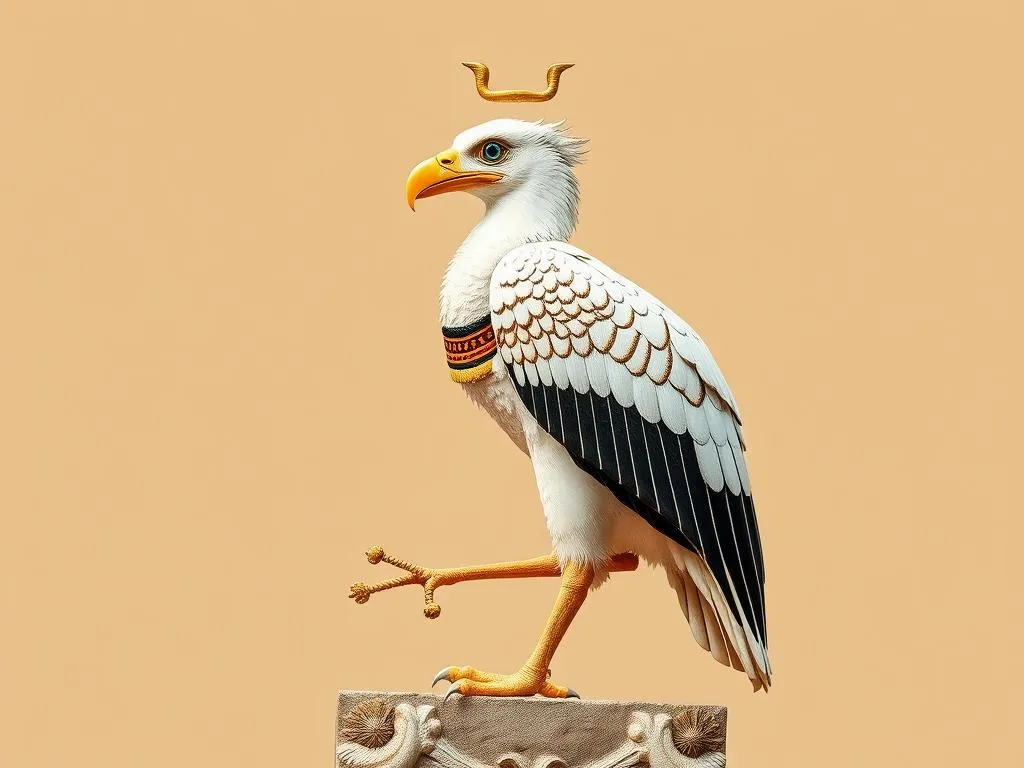
Disclaimer: Some images on this website are AI-generated artworks and may not accurately represent real animals.
The Egyptian Vulture is not just a bird; it’s a powerful symbol steeped in rich meanings and historical significance. Known for its distinctive appearance and unique behaviors, the Egyptian Vulture represents themes of renewal and transformation. This comprehensive exploration delves into the characteristics, symbolism, and modern interpretations of this fascinating bird.
Understanding the Egyptian Vulture
Physical Characteristics
The Egyptian Vulture is a striking bird, easily recognized by its unique features. Here’s a closer look at its physical attributes:
| Feature | Description |
|---|---|
| Size | Approximately 60-70 cm in length |
| Plumage | Predominantly white with black wing tips |
| Head | Bare, yellow skin with a distinctive crest |
| Beak | Strong and hooked, ideal for scavenging |
| Legs | Long and yellow, adapted for walking |
This bird is not only visually striking but also plays a crucial role in its ecosystem. The Egyptian Vulture is often seen soaring gracefully through the skies, and its adaptability to various environments highlights its resilience.
Habitat and Distribution
The Egyptian Vulture thrives in a variety of habitats, from rocky cliffs to open landscapes. These birds are primarily found in regions across North Africa, the Middle East, and parts of Southern Europe. They prefer areas that offer ample food sources, particularly carcasses, which they scavenge with remarkable efficiency. Their ability to inhabit diverse environments underscores their significance in the ecosystems they occupy.
Behavior and Diet
As scavengers, Egyptian Vultures play an essential role in maintaining ecological balance. Their diet mainly consists of carrion, but they are also known to eat small mammals, reptiles, and even human refuse. Their scavenging habits not only help in cleaning the environment but also prevent the spread of diseases.
These vultures are known for their remarkable intelligence, often using tools to access food. They have been observed dropping stones on ostrich eggs to crack them open, showcasing their problem-solving abilities. This behavior contributes to their image as symbols of renewal, as they help recycle nutrients back into the environment.
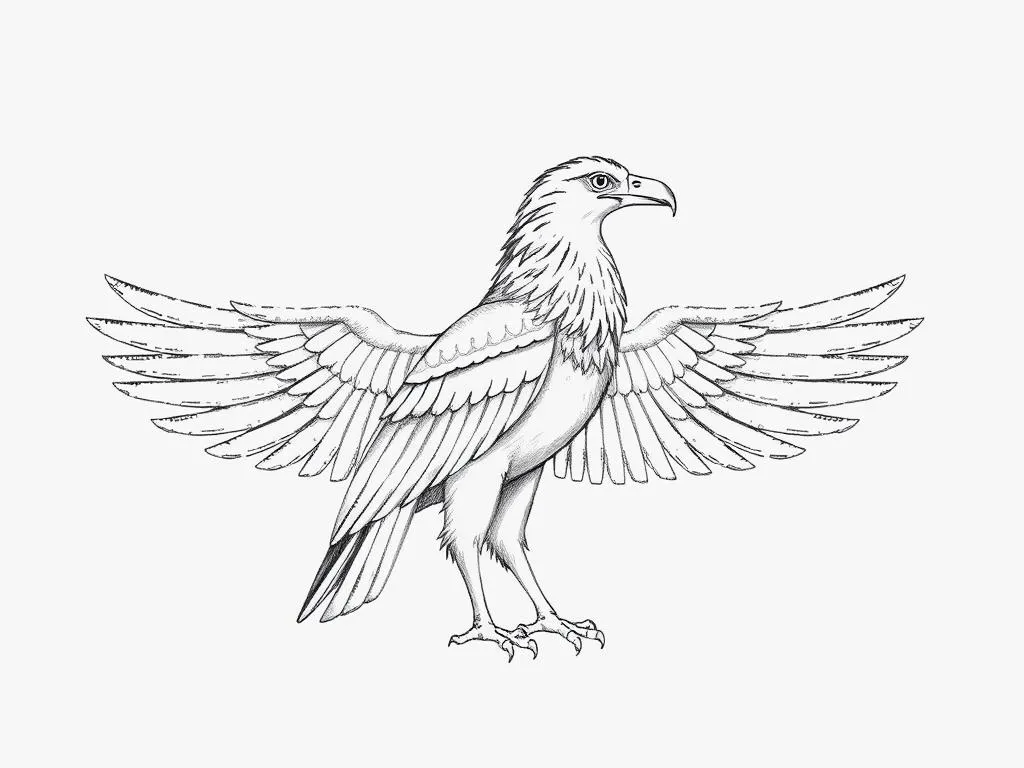
Symbolism & Spiritual Meaning
Renewal and Cleansing
The Egyptian Vulture embodies the themes of renewal and cleansing. As a scavenger, it plays a crucial role in the natural cycle of life and death. By consuming decaying matter, these birds contribute to the process of decomposition, allowing for new life to flourish. This role signifies a broader spiritual meaning of rebirth; just as the vulture clears the old, it makes way for new beginnings.
In many cultures, including ancient Egyptian beliefs, vultures are seen as guardians of the afterlife, symbolizing the cleansing of the soul. They remind us that to embrace renewal, we must sometimes let go of what no longer serves us.
Transformation and Change
The life cycle of the Egyptian Vulture reflects transformation and change. From hatching to maturity, these birds undergo significant growth and development. This transformation is not just physical but also metaphorical, representing the changes we all experience throughout our lives.
Often, the vulture is viewed as a guide through periods of transition. In times of personal upheaval, the appearance of the Egyptian Vulture can be seen as a signal to embrace change and transformation. Its presence encourages individuals to shed old habits and embrace new paths that align with their true selves.
Connection to Ancient Cultures
The significance of the Egyptian Vulture is deeply rooted in ancient cultures. In Egyptian mythology, the vulture was associated with the goddess Ma’at, who represented truth, balance, and order. The bird was often depicted in art and hieroglyphs, symbolizing protection and the nurturing aspect of motherhood.
Furthermore, the vulture’s image was used in funerary practices, signifying the transition from life to the afterlife. This connection to ancient beliefs highlights the enduring symbolism of the Egyptian Vulture as a powerful figure in spiritual and cultural contexts.
Egyptian Vulture in Dreams
Common Dream Themes
Dreaming of an Egyptian Vulture can carry significant meanings, often reflecting themes of renewal and transformation. Here are some common interpretations of dreams involving this bird:
| Dream Theme | Interpretation |
|---|---|
| Seeing a vulture flying high | Symbolizes freedom and the ability to rise above challenges |
| A vulture eating carrion | Indicates a need to let go of past burdens for personal growth |
| Interacting with a vulture | Suggests a journey of self-discovery and embracing change |
These dream interpretations emphasize the importance of understanding our subconscious messages, encouraging individuals to reflect on their current life situations.
Messages from the Subconscious
The Egyptian Vulture in dreams can signify profound messages from the subconscious. When this bird appears, it may indicate that a period of renewal is on the horizon. This could manifest as a new job, relationship, or personal growth opportunity.
Moreover, the vulture’s presence may serve as a reminder to clear away negativity or stagnant energy. It encourages dreamers to embrace change, let go of what no longer serves them, and open themselves to new possibilities.
Modern Interpretations
Cultural Significance Today
In contemporary society, the Egyptian Vulture continues to capture the imagination. While it is often overshadowed by more glamorous birds, its symbolism remains relevant. Many people view the vulture as a representation of resilience and adaptability, qualities that are essential in our fast-paced world.
Modern interpretations of the Egyptian Vulture highlight its role as a reminder to embrace life’s cycles. As we face challenges and changes, we can look to this bird as a source of inspiration, encouraging us to find strength in transformation.
Conservation and Environmental Symbolism
The Egyptian Vulture is also a poignant symbol in discussions about environmental conservation. As scavengers, these birds are indicators of ecosystem health; their decline often signals broader environmental issues. Efforts to protect the Egyptian Vulture reflect a commitment to preserving biodiversity and restoring ecological balance.
In a world increasingly affected by climate change and habitat destruction, the Egyptian Vulture serves as a reminder of our responsibility to the planet. By protecting this species, we honor its role in the ecosystem and acknowledge the interconnectedness of all life.
Key Takeaways
- The Egyptian Vulture is a powerful symbol of renewal and transformation, representing the cycles of life and death.
- Its role as a scavenger highlights the importance of cleansing and letting go of the past to welcome new beginnings.
- In dreams, the vulture can signify personal growth and the need for change.
- The cultural significance of the Egyptian Vulture is deeply rooted in ancient mythology, particularly in Egyptian beliefs.
- Understanding the symbolism of the Egyptian Vulture encourages personal reflection on our own journeys of transformation.
Conclusion
The Egyptian Vulture is more than just a bird; it embodies rich symbolism and meaning that resonates across cultures and time. Its association with renewal, transformation, and ecological balance serves as a powerful reminder of the cycles of life and the importance of embracing change.
As we reflect on the legacy of the Egyptian Vulture, we are encouraged to consider our own lives. Where can we embrace renewal? How can we transform our challenges into opportunities for growth? The Egyptian Vulture invites us to explore these questions, guiding us on a journey of self-discovery and evolution. Understanding its symbolism helps us appreciate the beauty of life’s transitions and the importance of our role in the greater ecosystem.
